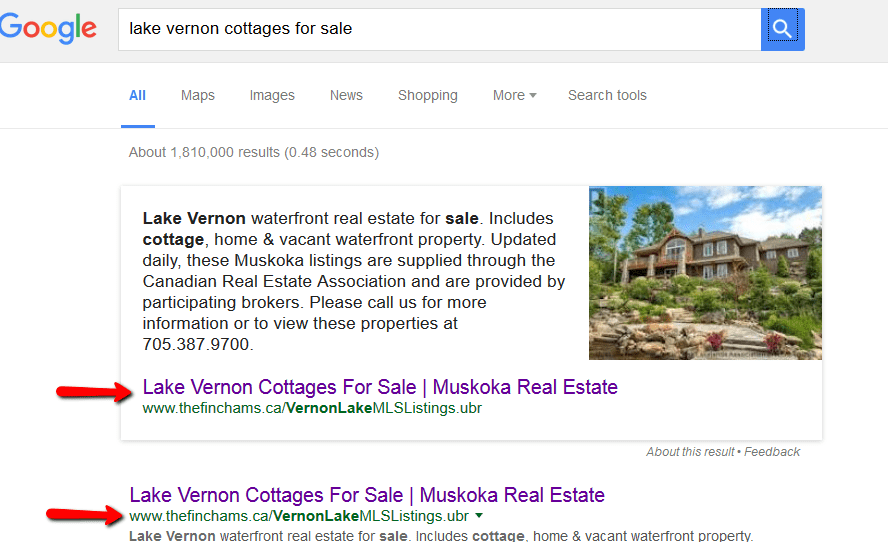If you don’t believe the Google algorithm has evolved into making content the number one search result criteria then check out “Google’s Featured Snippets in Search”
We had no idea this new feature had been added to Google search until a client called and said he had 7 phone calls in one day about cottages for sale on a specific lake. At the top of the page was a box with an excerpt from the page on his website, a photo excerpted from the page and a link to the page. Right below that is a link to the page again. Try your own search for lake vernon cottages for sale and see for yourself.
We did a little investigation and learned what Google has to say when a user asks a question in Google Search:
“we might show a summary of the answer in a special featured snippet block at the top of the search results page. This featured snippet block includes a summary of the answer, extracted from a webpage, plus a link to the page, the page title and URL.”
“The summary is a snippet extracted programmatically from a webpage. What’s different with a featured snippet is that it is enhanced to draw user attention on the results page. When we recognize that a query asks a question, we programmatically detect pages that answer the user’s question, and display a snippet as a featured snippet in the search results.”
How can I mark my page as a featured snippet?
You can’t. Google programmatically determines that a page contains a likely answer to the user’s question, and displays the result as a featured snippet. The only way to achieve this incredible advantage is to continue to add relevant keyword content in context so your page is the authoritative result for the search terms.
One thing I find interesting is that the page that is featured in the snippet does not have a lot of content which adds to the mystery of Google. Check it out.






